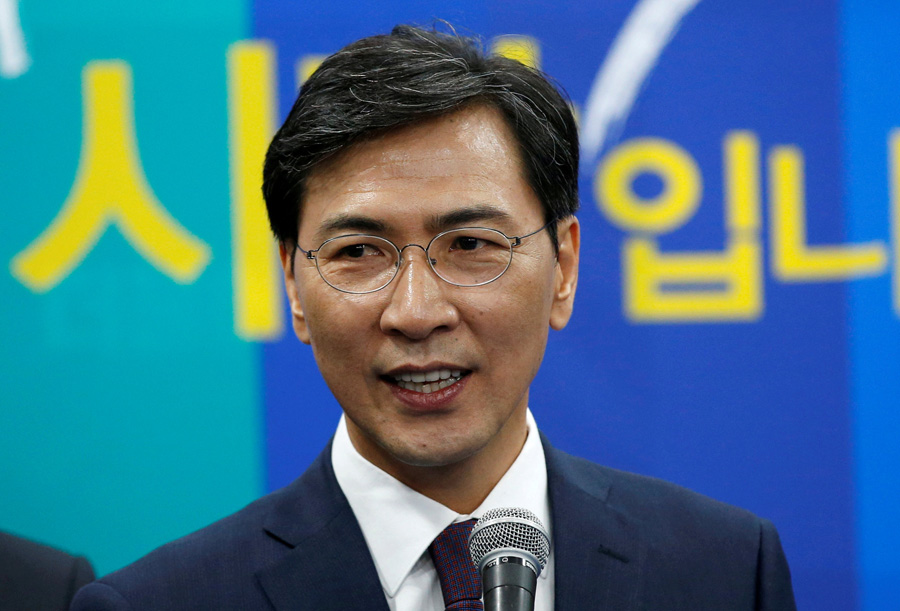Political hopeful admits assaults
China Daily | Updated: 2018-03-07 10:05

SEOUL - An up-and-coming South Korean provincial governor announced his resignation on Tuesday, just hours after an aide accused him of repeated sexual assault, as the snowballing #MeToo movement rattled the country's political establishment.
The woman accused An Hee-jung, a leading hopeful in last year's presidential election and a member of President Moon Jae-in's Democratic Party, in a television interview on Monday evening. Police said they were investigating the allegations.
An's office initially claimed that the sex was consensual; however, just a few hours after the interview was aired, An took to Facebook to say his staff's statement was erroneous and announced he planned to retire from political life.
"My staff office's description of the relationship as consensual was incorrect," he wrote.
"Everything is my fault."
The Chungnam provincial police department said it has launched an investigation.
Discussion of sexual misconduct has long been taboo in South Korea, but in recent months the anti-sexual harassment #MeToo movement has taken off, ensnaring a number of high-profile figures across various fields, from the entertainment industry to the religious community to the literary world.
Speaking to broadcaster JTBC, An's aide, Kim Jieun, said An had sexually harassed and repeatedly assaulted her.
"Over the past eight months, I have been sexually assaulted four times," she told broadcaster JTBC.
"An recently talked to me about the growing sense of the #MeToo movement and it seems to me that he looked nervous and asked me if I was okay, then he said he was sorry," Kim said, adding that An nevertheless assaulted her again.
The ruling Democratic Party quickly moved to expel An from the party.
A youthful-looking 52-year-old, An became an unexpected challenger to Moon during last year's presidential primaries.
He was seen by many as a down-to-earth, uncomplicated politician, traits that served him well in a nation roiled by the impeachment of president Park Geun-hye in 2016.
Several men in South Korean arts, entertainment and academia have apologized or resigned after victims came forward as part of the global #MeToo movement against sexual misconduct, but An was the first prominent politician to be named in the movement.
Reuters - AP
























